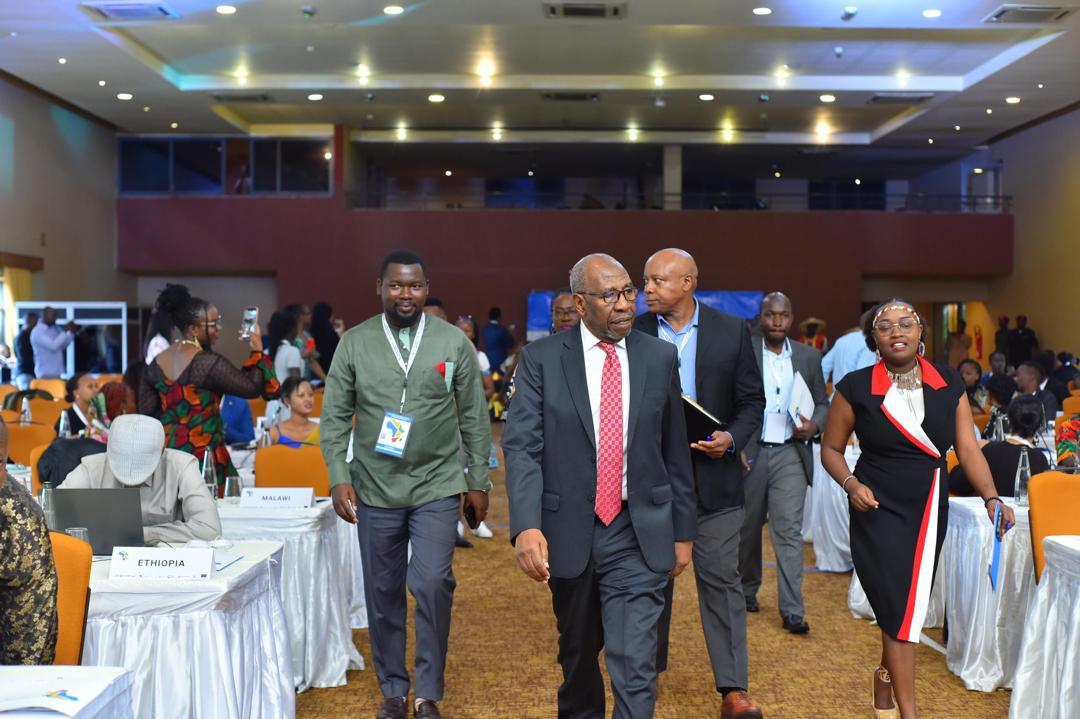Prime
Northern Uganda holds up tears over end of Nusaf3

Members of NUSAF 3 savings group in Otuke District come together to save money in July 2019. PHOTO / BILL OKETCH
What you need to know:
- The $130m (about Shs459b) redevelopment project officially closed shop on June 30, after five years of implementation, leaving people whose livelihoods were shattered by a two-decade insurgency desperate.
The Third Northern Uganda Social Action Fund’s (Nusaf3) wind-up has sparked fresh concerns about the fate of war survivors in northern Uganda.
The $130m (about Shs459b) redevelopment project officially closed shop on June 30, after five years of implementation, leaving people whose livelihoods were shattered by a two-decade insurgency desperate.
“Implementation was slowed down in 2020 due to the Covid-19 pandemic which necessitated a no-cost extension to the closing date of June 30, 2021,” Nusaf3 project communications’ specialist, Mr Simon Kisaka, said via email.
Local leaders said Nusaf3 closed shop at the time it was needed most. The district council in Apac fears that the wind-up will create a yawning gap in service delivery.
Mr Moses Banoba, a councillor representing Ibuje Sub-county, said the project has helped improve the road network and easing access to clean water.
“Government should consider reinstating Nusaf to help in funding other projects which the district is unable to fund so that some areas which are so behind in terms of development can catch up with others,” he said.
Mr Moses Adoko Okello, Agulu Division councillor in Apac Municipality, also confirmed that the district constructed many roads behind Nusaf3 funds.
Consequently, Mr Tonny Jasper Odongo, the Apac LC5 vice chairperson, appealed to the government to increase funding to local government.
“We shall write to the central government to request them to reinstate Nusaf so that it continues supporting our people,” he said.
Ms Harriet Among of Akuki Village, Abella Parish, Aleka Sub-county in Oyam, said: “There are a lot of challenges that we are still facing as a result of the two-decade conflict. Without the support from Nusaf, there is no way we are going to rebuild our homes and lives.”
Ms Grace Ayugi, the community development officer (CDO) of Minakulu Sub-county in Oyam District, says it is not an accident that Nusaf3 is fondly remembered.
The project, which was propped by a World Bank IDA loan, went about the reconstruction process differently. Unlike other projects, Nusaf3 required beneficiaries to organise themselves in groups that engage in market-driven enterprises.
A resounding success?
Mr Isaac Newton Elwa, the Nusaf3 facilitator, told Daily Monitor that it supported 185 sub-projects in Oyam District at a tune of nearly Shs5.4b since the third phase of the rebuilding process kicked off in March 2016.
Dr Robert Limlim, the Nusaf3 director, said the project’s last joint review mission in early June returned an overall satisfactory rating from the World Bank.
“The review mission was pleased to note that the project impact evaluation results gave clear indications of the project impact with the result indicators having been achieved or overachieved,” he said.
Dr Limlim nevertheless acknowledged that the pandemic has impacted negatively on the implementation of the project with restrictions in June affecting “the completion of pending activities and utilisation of the final disbursement.”
Dr Limlim added: “Over Shs346b was disbursed to the communities. The districts and communities have so far accounted for 99.44 per cent of the funds received.
The remaining balance is being utilised and is expected to be accounted for to 100 per cent.”
Challenges, however, abound, including financial accountabilities from the districts that were affected after Parliament pondered over approving a supplementary budget.
But as Mr Kisaka revealed the joint review mission was “satisfied that a sustainability plan had been put in place for the various interventions of Nusaf3.”
During the project implementation, the government, through the Office of the Prime Minister, used the “watershed approach” to implement Nusaf3.
A watershed is a water drainage or catchment area in which most communities are settled historically.
The watershed approach concentrates and integrates development resources in a geographical sub-division called a “watershed.”
This approach enables the project to concentrate resources in order to achieve a critical mass of development.
It also brings about a positive environmental impact within the watershed, with watersheds possibly taking up several villages.
Whereas the government and implementing partners are basking in the glory of success stories, there have also been reported gross anomalies in the implementation of Nusaf3. Lango Sub-region has particularly been caught in the crosshairs.
Financial mismanagement
For instance, money intended to provide effective income support to and build the resilience of poor and vulnerable households ended up in the hands of a police officer in Kole District.
The Apac Anti-Corruption Coalition’s (TAACC) fraud investigation of projects under Nusaf3 in Okwerodot Sub-county indicated that the police officer pocketed Shs700,000.
The money was recovered from a member of the Community Project Management Committee (CPMC), Mr Caesar Juke, who accepted that he had mismanaged Shs1.8m during the implementation of Nusaf3.
The community had received Shs84m under the project for Ajokawelo to Baropiro road work.
The work was labour-based and the Shs1.8m that was mismanaged by those implementing the project was meant to be earmarked for paying workers.
Consequently, the matter was reported to the police leading to the arrest of Mr Juke and two accomplices in 2018.
“The most unfortunate thing about this money is that it was handed over to police and the police officer who allegedly received this money has been transferred from Kole District to Kwania District,” Mr Tom Superman Opwonya, TAACC’s executive officer, told this newspaper last year.
Elsewhere, a supplier and two district officials were last week arrested and detained at Pader Central Police Station for allegedly supplying blind cows to Nusaf3 beneficiaries.
Also, at least 33,175 targeted beneficiaries were likely to miss out on the project due to pandemic-enforced bottlenecks, an official told Daily Monitor in March.




